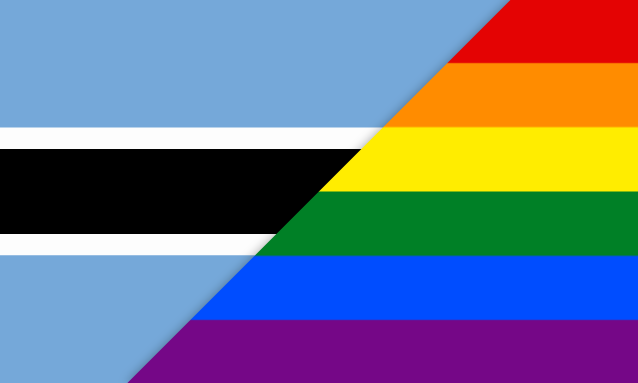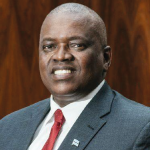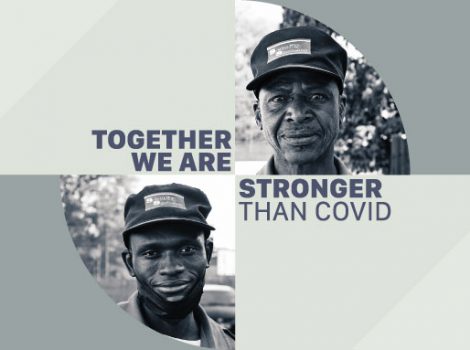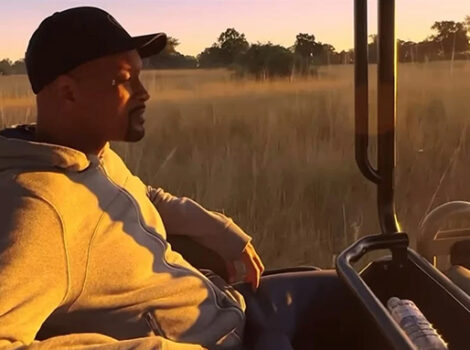
Botswana’s High Court on Tuesday ruled in favour of decriminalising homosexuality in a landmark decision for campaigners. The court rejected laws that impose up to seven years in prison for same-sex relationships, stating they were unconstitutional.
The move contrasts with Kenya’s recent ruling against campaigners seeking to overturn laws on gay sex. Angola, Mozambique and the Seychelles have all scrapped anti-homosexuality laws in recent years.
After three judges unanimously came to the decision, Judge Michael Elburu delivered the verdict.
“Human dignity is harmed when minority groups are marginalised,” he said.
He labelled laws banning gay sex as “discriminatory” and said:
“Sexual orientation is not a fashion statement. It is an important attribute of one’s personality.”
The law has been in place since 1965 when it was brought in by the colonial British government. The case was brought to court by a student who argued society had changed and homosexuality was more widely accepted. Activists welcomed the decision and described it as a significant step for gay rights on the African continent.
“A democratic society is one that embraces tolerance, diversity and open-mindedness,” Justice Michael Leburu said, noting that discriminatory law not only serves as a detriment to LGBTQ people but holds back all of society. Societal inclusion is central to ending poverty and fostering shared prosperity.” – Judge Michael Elburu.
The challenges for Africa’s LGBTQ community
The ruling comes just a month after Kenya’s high court upheld its laws criminalising homosexuality. Under section 164 of Botswana’s Penal Code,
“carnal knowledge of any person against the order of nature,” was an offence that carried a maximum sentence of seven years imprisonment. Section 167 made “acts of gross indecency” — whether in public or private — a punishable offence, with up to two years in prison.
The case was brought to court in March by Letsweletse Motshidiemang, a 21-year-old student at the University of Botswana, who argued that society had changed and that homosexuality was more widely accepted, local media reported.
The packed court erupted in cheers of joy upon hearing the verdict. Neela Ghoshal, a senior researcher for Human Rights Watch, told CNN that the ruling sets a “powerful precedent on the continent by recognising that the criminalisation of same sex conduct violates privacy rights and is blatantly discriminatory.”
“The High Court is right in declaring that sodomy laws belong in a museum or the archives, not in modern life,” she said.
Anna Mmolai-Chalmers, coordinator of Legabibo, a prominent LGBTQ rights group in the country, said that the verdict would have a tangible impact on LGBTQ individuals’ daily life, saying that it would help with access to health and legal services.
“Before we were struggling. People have been hiding,” Mmolai-Chalmers told CNN.
“This judgement can make a massive change in our lives. This is what excites me the most. The judgement means so much… The court has upheld our dignity, our privacy, and our liberty… It means freedom,” she added.
Human rights lawyer Keikantse Phele called the judgement “a welcome development,” adding that there is still “lots of work that needs to be done in terms of access to all services, spaces and development.”
While homophobic attitudes continue to prevail in parts of the country, Botswana’s LGBTQ activists and supporters have marked some victories for the movement in recent years.
The 2010 Employment Act made it illegal for employers to terminate contracts on the basis of sexual orientation, in 2014 the High Court ruled that the government had to allow Legabibo to register as an organisation and two landmark rulings in October and December 2017 laid the foundation for trans people to more easily change their official gender on identity documents.
Following a brutal attack on a transgender woman last November, Botswana’s President Mokgweetsi Masisi signalled his support for LGBTI people, saying,

“there are many people in same-sex relationships in this country who have been violated and have also suffered in silence for fear of being discriminated. (…) Just like other citizens, they deserve to have their rights protected.”
Tuesdays’ historic ruling is a win for LGBTQ activists and supporters in a country – and region – where homosexuality remains largely taboo.
Out of 54 African countries, at least 31 of them have enacted laws making it illegal to have gay sex, according to the International Lesbian, Gay, Bisexual, Trans and Intersex Association (ILGA). In parts of Nigeria and Somalia, and in Sudan, it is punishable by death; in Mauritania, the death penalty is a possible punishment. In Tanzania, being convicted of having same-sex relations can result in a life sentence.
In January, Angola’s parliament adopted a new penal code, for the first time since it gained independence from Portugal in 1975, which paved the way for lawmakers to remove the provision characterising same-sex relationships as “vices against nature.”
Mozambique removed anti-gay laws in 2015, while São Tomé and Cape Verde have also abolished laws criminalising gay relationships.
Although Kenya struck down the change to the law that criminalises homosexuality in May – and remains a deeply conservative and religious society – its courts have shown some independence in recent years regarding LGBTQ matters.
Across the globe, a staggering 70 UN member states – almost half of which are in Africa – still criminalise same-sex relations between two consenting adults, according to ILGA’s 2019 state-sponsored homophobia report.
In 26 of those countries, the penalty varies from 10 years in prison to life.
The ruling party, the BDP responds to the court ruling
The Botswana Democratic Party welcomes the judgment of the High Court of Botswana to repeal Sections 164, 165 and 167 of the Penal Code which criminalises consensual same sex.
Today’s judgement resonates with sentiments expressed in a statement by His Excellency, President Dr. Mokgweetsi E. K. Masisi in November 2018, at the launch of the commemoration of 16 days against violence on women and children, when he said:
“There are also many people of same-sex relationships in this country, who have been violated and also suffered in silence for fear of being discriminated, just like other citizens, they deserve to have their rights protected.”
For our part as the BDP, we continue to engage Batswana to ensure that no one feels marginalised or discriminated against irrespective of their race, ethnicity, creed, gender or sexual preference. This, we will achieve through the promotion of diversity, inclusion, open-mindedness, tolerance, protecting human rights and upholding good governance in order to achieve prosperity and a progressive future for all our citizens.
Sources: bbc.com / cnn.com / sundaystandard.co.bw



